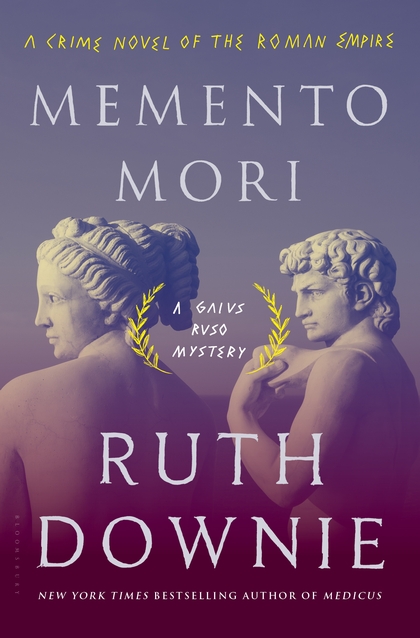Memento Mori by Ruth Downie
/Memento Mori
by Ruth Downie
Bloomsbury, 2018
Tragedy strikes close to home in Ruth Downie's new novel Memento Mori, the eighth in her series featuring medicus (think one part medical man and nine parts very skilled butcher) Gaius Ruso and his wife Tilla: the wife of Gaius' best friend, Valens, has been found murdered in the allegedly healing waters of the sacred hot spring in the town Aquae Sulis – modern-day Bath. The town priests and politicians had built the temple around the spring and, in an attempt to ease frictions between the English and their Roman conquerors, had given it a hybrid name intended to honor both the Roman goddess and the local deity. Ordinarily, townspeople contented themselves with throwing small metal tablets containing curses into the hot waters of the spring; the discovery of a body would be a catastrophic scandal as well as a tragedy and a crime.
Naturally, Ruso agrees to travel to Aquae Sulis and do what he can to comfort his friend and investigate the death. Right from the beginning of Downie's wonderfully fine-grained and well-researched series, Ruso has often felt like a living embodiment of those tensions between native and conqueror. In the first book in the series, he's a medicus attached to the legions, but his marriage to a Briton is only one of the many factors pulling him in the opposite direction. It's a dichotomy Ruso himself ruefully sums up at the start of Memento Mori:
“My former employers in the military want to know why I've gone native. The natives still can't understand why the military are building Hadrian's bloody great wall across their farms. Some of Tilla's relatives seem to think I'm personally responsible for it. And both sides think I must be a spy.”
Downie unfolds the investigation at her customary smooth, deliberate pace, filling her pages with well-realized characters … the least obtrusive of which is the hot spring itself, which was the center of the city long, long before Jane Austen came along and made the whole place famous all over again. In remarkable Author's Note, Downie mentions that although the incredible original site of the temple is no longer suitable for bathing, it's still possible to take the same waters the Romans took: the hot springs feed nearby spas that are very much open for business – even if Gaius Ruso isn't around to sleuth any boiled murder victims.
Steve Donoghue was a founding editor of Open Letters Monthly. His book criticism has appeared in the Boston Globe, the Wall Street Journal, and the American Conservative. He writes regularly for the National, the Washington Post, the Vineyard Gazette, and the Christian Science Monitor. His website is http://www.stevedonoghue.com.
